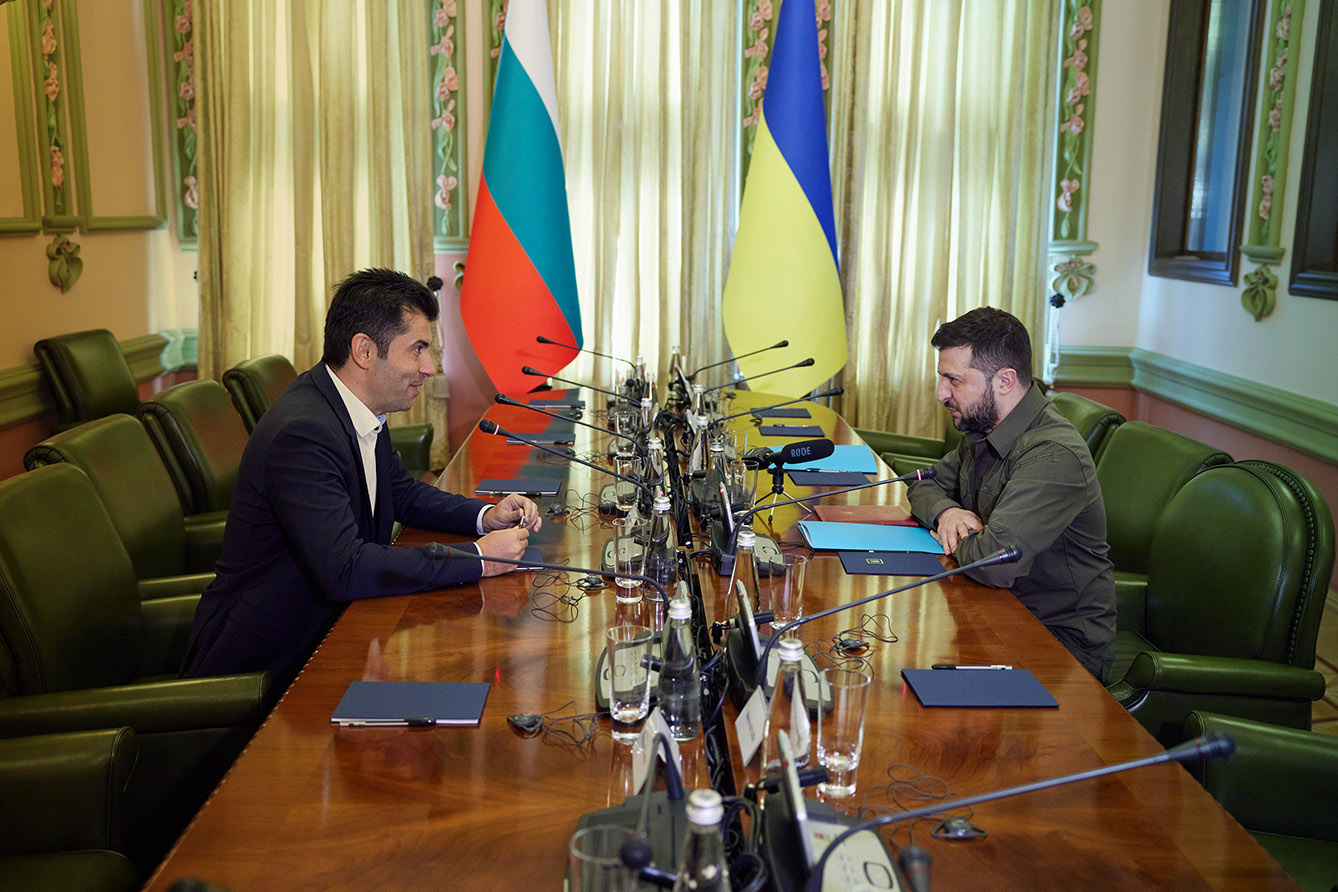Russia’s invasion of Ukraine amounts to an earthquake in world affairs, upending relations that seemed to have been cemented for decades to come. Bulgaria is one of the countries that has seen its relations with Russia deeply affected due to the war. After refusing to agree to Moscow’s “rubles for gas-scheme,” Bulgaria became one of the two EU countries which has had their gas supplies abruptly cut off from Russia.
Poll: Bulgaria’s place in the EU and NATO
In return, Bulgarian PM Kiril Petkov traveled to Kyiv and declared clear support for Ukraine and agreed for Bulgaria to repair Ukrainian military equipment in Bulgarian plants before sending it back to the frontlines in Ukraine. Many experts on international relations are rubbing their eyes, as we are witnessing a major realignment in European politics that few believed possible just months ago.
On February 28th, just 4 days into the invasion, Alpha Research published the results of a poll on how Bulgarians attitudes to the war. Russian president Vladimir Putin’s approval rating had tumbled by more than half, down to just 25% compared to 55% in 2021. In addition, 63% stated that Bulgaria’s place was in alliance with the European Union and NATO, while only 15% said the same about Russia. It is not an exaggeration to say that Russia has suffered a massive loss of trust among the Bulgarian public due to its decision to invade a neighboring, sovereign state.
The Russian connection
Russia and Bulgaria have had a special relationship since the Russo-Turkish War of 1877-1878, which was the catalyst for Bulgarian independence after five centuries of Ottoman rule. The two countries share the Orthodox faith, the Cyrillic script is a Bulgarian invention and the Bulgarian language had significant influence on Russian through Old Church Slavonic, and the literary schools that existed in the Second Bulgarian Empire (1185 and 1396). In turn, Russian had significant influence on Bulgarian in the decades after the Crimean War, with many members of the Bulgarian elite receiving their education in Russia.
Despite these connections, the relationship was not always very good as the Bulgarians did not look favorably at Russia’s tendency to favor Serbian interests over Bulgarian and Bulgaria sided twice against Russia in the world wars.
Russian influence returned with the arrival of the Soviet Red Army in 1944 and Bulgaria’s inclusion into the Warsaw Pact as one of the Soviet satellite states. Despite Bulgaria’s western path toward NATO and EU membership, relations with Russia remained good in the decades following the fall of communism and are now going through their first significant stress test. PM Petkov’s strong rebuttal of Russian aggression is likely to have surprised many decision makers in the Kremlin.
Conflict over Ukraine
Natural gas makes up only 6% of Bulgaria’s total energy consumption, with 34% provided by nuclear energy and much of the rest by either coal or oil. However, 90% of the gas it uses is imported from Russia via Turkey through the Turkstream pipeline that has been laid on the bottom of the Black Sea.
Russia’s decision on April 27th to cut all gas supplies to Bulgaria means that the country must scramble to find other sources ahead of next winter. Fortunately, the IGB gas pipeline to Greece that will bring Azeri gas to Bulgaria through Turkey will be completed in June. On May 3rd, PM Petkov attended the ceremony marking the start of construction of the LNG terminal near the Greek city Alexandroupolis, having bought 20% of the shares in the project in 2020. Greece is already helping Bulgaria cover for lost Russian gas via Greece’s only currently operational LNG terminal near Athens.
On April 27th, PM Petkov reacted to the news of the Russian gas blockade at a press conference, announcing that Bulgaria’s relations to Russia must change following its invasion of Ukraine. The prime minister traveled to Kyiv the following day to meet with President Zelensky and announced a slew of measures Bulgaria will take to help Ukraine, including access to the Port of Varna for Ukraine to be able to export some of its most critical export goods such as grains.
Bulgaria to help Ukrainian Army
On May 3rd, MPs voted to allow the government to provide military-technical support to Ukraine and start investigating how the country can help repair Ukrainian heavy military equipment in Bulgarian plants. All taken together, both the Bulgarian government and the Bulgarian public have embarked on a path distancing them from Russia. It is quite possible that Russia will try to find other measures to further punish Bulgaria for its insubordination and Bulgaria will in turn seek support from its closest neighbors and EU allies to mitigate the consequences of its deteriorating relationship with Bulgaria.
It will be paramount for other EU countries to give Bulgaria the aid needed in order not to allow Russia to set a dangerous precedent that could potentially deter other European states from standing up to Russian aggression. In accordance with the phrase “all for one, one for all”, popularized in the novel “The Three Musketeers” by Alexandre Dumas, the EU will have to show up a united front in the coming months if the bloc is to be able to counter Russian aggression in Europe.







